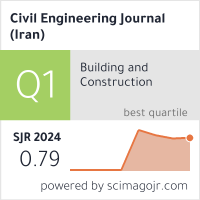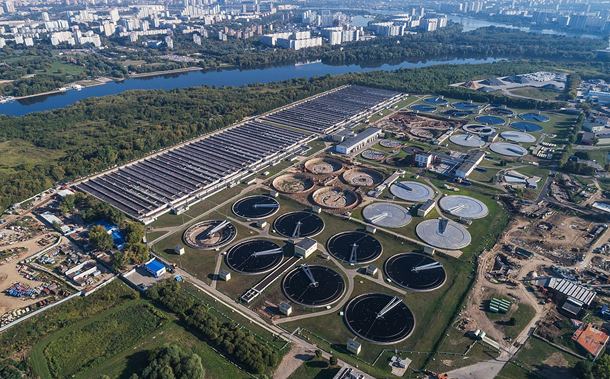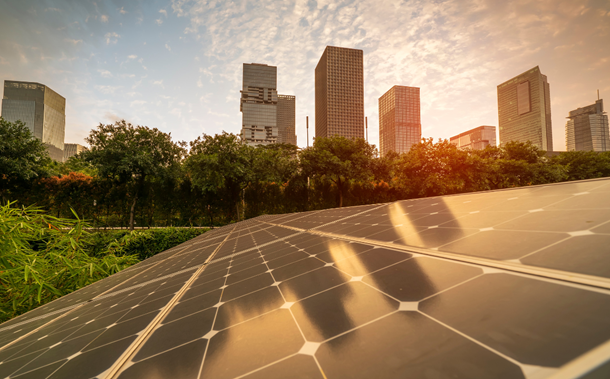Evaluating Willingness to Pay for E-Waste Recycling in Vietnam
Downloads
Doi:10.28991/CEJ-2023-09-10-03
Full Text:PDF
Downloads
[2] Vaish, B., Sharma, B., Singh, P., & Singh, R. P. (2020). E-waste and Their Implications on the Environment and Human Health. In E-waste Recycling and Management: Present Scenarios and Environmental Issues, 219–232. doi:10.1007/978-3-030-14184-4_12.
[3] Yang, C., Tan, Q., Liu, L., Dong, Q., & Li, J. (2017). Recycling Tin from Electronic Waste: A Problem That Needs More Attention. ACS Sustainable Chemistry & Engineering, 5(11), 9586–9598. doi:10.1021/acssuschemeng.7b02903.
[4] Forti, V., Balde, C. P., Kuehr, R., & Bel, G. (2020). The Global E-waste Monitor 2020: Quantities, flows and the circular economy potential. United Nations University/United Nations Institute for Training and Research, International Telecommunication Union, and International Solid Waste Association, Tokyo, Japan.
[5] Zhang, L., Qu, J., Sheng, H., Yang, J., Wu, H., & Yuan, Z. (2019). Urban mining potentials of university: In-use and hibernating stocks of personal electronics and students' disposal behaviors. Resources, Conservation and Recycling, 143, 210–217. doi:10.1016/j.resconrec.2019.01.007.
[6] Cucchiella, F., D'Adamo, I., Lenny Koh, S. C., & Rosa, P. (2015). Recycling of WEEEs: An economic assessment of present and future e-waste streams. Renewable and Sustainable Energy Reviews, 51, 263–272. doi:10.1016/j.rser.2015.06.010.
[7] Fadlil, A., Umar, R., & Nugroho, A. S. (2022). Comparison of machine learning approach for waste bottle classification. Emerging Science Journal, 6(5), 1075-1085. doi:10.28991/ESJ-2022-06-05-011.
[8] Cai, K., Wang, L., Ke, J., He, X., Song, Q., Hu, J., Yang, G., & Li, J. (2023). Differences and determinants for polluted area, urban and rural residents' willingness to hand over and pay for waste mobile phone recycling: Evidence from China. Waste Management, 157, 290–300. doi:10.1016/j.wasman.2022.12.032.
[9] Perkins, D. N., Brune Drisse, M. N., Nxele, T., & Sly, P. D. (2014). E-waste: A global hazard. Annals of Global Health, 80(4), 286–295. doi:10.1016/j.aogh.2014.10.001.
[10] Wu, Q., Leung, J. Y. S., Geng, X., Chen, S., Huang, X., Li, H., Huang, Z., Zhu, L., Chen, J., & Lu, Y. (2015). Heavy metal contamination of soil and water in the vicinity of an abandoned e-waste recycling site: Implications for dissemination of heavy metals. Science of the Total Environment, 506–507, 217–225. doi:10.1016/j.scitotenv.2014.10.121.
[11] Jayaraman, K., Vejayon, S., Raman, S., & Mostafiz, I. (2019). The proposed e-waste management model from the conviction of individual laptop disposal practices-An empirical study in Malaysia. Journal of Cleaner Production, 208, 688–696. doi:10.1016/j.jclepro.2018.10.125.
[12] Ngo, H. T. T., Watchalayann, P., Nguyen, D. B., Doan, H. N., & Liang, L. (2021). Environmental health risk assessment of heavy metal exposure among children living in an informal e-waste processing village in Viet Nam. Science of the Total Environment, 763, 142982. doi:10.1016/j.scitotenv.2020.142982.
[13] Cai, K., Song, Q., Peng, S., Yuan, W., Liang, Y., & Li, J. (2020). Uncovering residents' behaviors, attitudes, and WTP for recycling e-waste: a case study of Zhuhai city, China. Environmental Science and Pollution Research, 27(2), 2386–2399. doi:10.1007/s11356-019-06917-x.
[14] Ananno, A. A., Masud, M. H., Dabnichki, P., Mahjabeen, M., & Chowdhury, S. A. (2021). Survey and analysis of consumers' behaviour for electronic waste management in Bangladesh. Journal of Environmental Management, 282, 111943. doi:10.1016/j.jenvman.2021.111943.
[15] Islam, M. T., Dias, P., & Huda, N. (2021). Young consumers' e-waste awareness, consumption, disposal, and recycling behavior: A case study of university students in Sydney, Australia. Journal of Cleaner Production, 282, 124490. doi:10.1016/j.jclepro.2020.124490.
[16] de Oliveira Neto, J. F., Monteiro, M., Silva, M. M., Miranda, R., & Santos, S. M. (2022). Household practices regarding e-waste management: A case study from Brazil. Environmental Technology & Innovation, 28, 102723. doi:10.1016/j.eti.2022.102723.
[17] Koshta, N., Patra, S., & Singh, S. P. (2022). Sharing economic responsibility: Assessing end user's willingness to support E-waste reverse logistics for circular economy. Journal of Cleaner Production, 332, 130057. doi:10.1016/j.jclepro.2021.130057.
[18] Cam, B.D., Trung, D.Q. Thung, N.X., Thao, T.T. Quang, C. X., Dai, T. X., Huong, D. V. & Ha, N. M. (2013). Investigation of the situation and development of the e-waste management, recycling technology models (television, personal computer, mobile-phone, and refrigerator) in the Northern Key Economic Zone (Vietnam) during the period of 2010-2020. University of Natural Sciences, Ha Noi National University, Hanoi, Vietnam.
[19] Giao, N. T., Lí¢m, T. K. T., & La, N. K. L. (2021). Assess the current status and management of household electronic waste in Can Tho city. Can Tho University Journal of Science, 57(3), 31–39. doi:10.22144/ctu.jvn.2021.083. (In Vietnamese).
[20] Nguyen, H. T. T., Lee, C. H., & Hung, R. J. (2021). Willingness of end users to pay for e-waste recycling. Global Journal of Environmental Science and Management, 7(1), 47–58. doi:10.22034/gjesm.2021.01.04.
[21] Wang, Z., Zhang, B., Yin, J., & Zhang, X. (2011). Willingness and behavior towards e-waste recycling for residents in Beijing city, China. Journal of Cleaner Production, 19(9–10), 977–984. doi:10.1016/j.jclepro.2010.09.016.
[22] Zhu, X., Lane, R., & Werner, T. T. (2017). Modelling in-use stocks and spatial distributions of household electronic devices and their contained metals based on household survey data. Resources, Conservation and Recycling, 120, 27–37. doi:10.1016/j.resconrec.2017.01.002.
[23] Ganivet, E. (2020). Growth in human population and consumption both need to be addressed to reach an ecologically sustainable future. Environment, Development and Sustainability, 22(6), 4979–4998. doi:10.1007/s10668-019-00446-w.
[24] Geng, D., Liu, J., & Zhu, Q. (2017). Motivating sustainable consumption among Chinese adolescents: An empirical examination. Journal of Cleaner Production, 141, 315–322. doi:10.1016/j.jclepro.2016.09.113.
[25] Quoquab, F., & Mohammad, J. (2020). Cognitive, affective and conative domains of sustainable consumption: Scale development and validation using confirmatory composite analysis. Sustainability (Switzerland), 12(18), 7784. doi:10.3390/SU12187784.
[26] Song, Q., Wang, Z., & Li, J. (2012). Residents' behaviors, attitudes, and willingness to pay for recycling e-waste in Macau. Journal of Environmental Management, 106, 8–16. doi:10.1016/j.jenvman.2012.03.036.
[27] Yin, J., Gao, Y., & Xu, H. (2014). Survey and analysis of consumers' behaviour of waste mobile phone recycling in China. Journal of Cleaner Production, 65, 517–525. doi:10.1016/j.jclepro.2013.10.006.
[28] Department of Administration and Planning (2023). Statistical report for the fourth quarter of 2022. General Planning Department, Can Tho, Vietnam. Available online: https://dap.ctu.edu.vn/so-lieu-thon/88-so-lieu-thong-ke-quy-3-2035.html (Accessed on April 2023). (In Vietnamese).
[29] CTU (2022). Summary of summer activities in 2022. Youth Union - Student Association of Can Tho University, Can Tho, Vietnam. Available online: https://yu.ctu.edu.vn/hsv/sv5t/tinh-nguyen-tot/1807-clbmt-tk-hd-he-tai-cho-2022.html (Accessed on August 2023). (In Vietnamese).
[30] CTU (2019). Students excitedly responded to exchange plastic waste for gifts. Youth Union - Student Association of Can Tho University, Can Tho, Vietnam. Available online: https://yu.ctu.edu.vn/dtn/bpt/thanh-nien-tinh-nguyen/5-doan-khoa-mttntn-sinh-vien-hao-hung-doi-rac-lay-qua.html. (Accessed on August 2023). (In Vietnamese).
[31] Leedy, P.D. & Ormrod, J.E. (2005) Practical Research: Planning and Design. Prentice Hall, Hoboken, United States.
[32] Liao, C., & Li, H. (2019). Environmental education, knowledge, and high school students' intention toward separation of solid waste on campus. International Journal of Environmental Research and Public Health, 16(9), 1659. doi:10.3390/ijerph16091659.
[33] Hair Jr., J.F., Black, W.C., Babin, B.J. & Anderson, R.E. (2009) Multivariate Data Analysis (7th Ed.). Prentice Hall, Hoboken, United States.
[34] Kumar, A. (2019). Exploring young adults' e-waste recycling behaviour using an extended theory of planned behaviour model: A cross-cultural study. Resources, Conservation and Recycling, 141, 378–389. doi:10.1016/j.resconrec.2018.10.013.
[35] DagiliŠ«tÄ—, R., Zabulionis, D., SujetovienÄ—, G., & Š½altauskaitÄ—, J. (2019). Waste of electrical and electronic equipment: Trends and awareness among youths in Lithuania. Waste Management and Research, 37(1), 95–101. doi:10.1177/0734242X18806999.
[36] Arain, A. L., Pummill, R., Adu-Brimpong, J., Becker, S., Green, M., Ilardi, M., Van Dam, E., & Neitzel, R. L. (2020). Analysis of e-waste recycling behavior based on survey at a Midwestern US University. Waste Management, 105, 119–127. doi:10.1016/j.wasman.2020.02.002.
[37] Dhir, A., Malodia, S., Awan, U., Sakashita, M., & Kaur, P. (2021). Extended valence theory perspective on consumers' e-waste recycling intentions in Japan. Journal of Cleaner Production, 312, 127443. doi:10.1016/j.jclepro.2021.127443.
[38] Aboelmaged, M. (2021). E-waste recycling behaviour: An integration of recycling habits into the theory of planned behaviour. Journal of Cleaner Production, 278, 124182. doi:10.1016/j.jclepro.2020.124182.
[39] Yadav, R., Kumar Panda, D., & Kumar, S. (2022). Understanding the individuals' motivators and barriers of e-waste recycling: A mixed-method approach. Journal of Environmental Management, 324, 116303. doi:10.1016/j.jenvman.2022.116303.
[40] Wang, Z., Zhang, B., Yin, J., & Zhang, X. (2011). Willingness and behavior towards e-waste recycling for residents in Beijing city, China. Journal of Cleaner Production, 19(9–10), 977–984. doi:10.1016/j.jclepro.2010.09.016.
[41] Wang, Z., Guo, D., Wang, X., Zhang, B., & Wang, B. (2018). How does information publicity influence residents' behaviour intentions around e-waste recycling? Resources, Conservation and Recycling, 133, 1–9. doi:10.1016/j.resconrec.2018.01.014.
- Authors retain all copyrights. It is noticeable that authors will not be forced to sign any copyright transfer agreements.
- This work (including HTML and PDF Files) is licensed under a Creative Commons Attribution 4.0 International License.![]()















